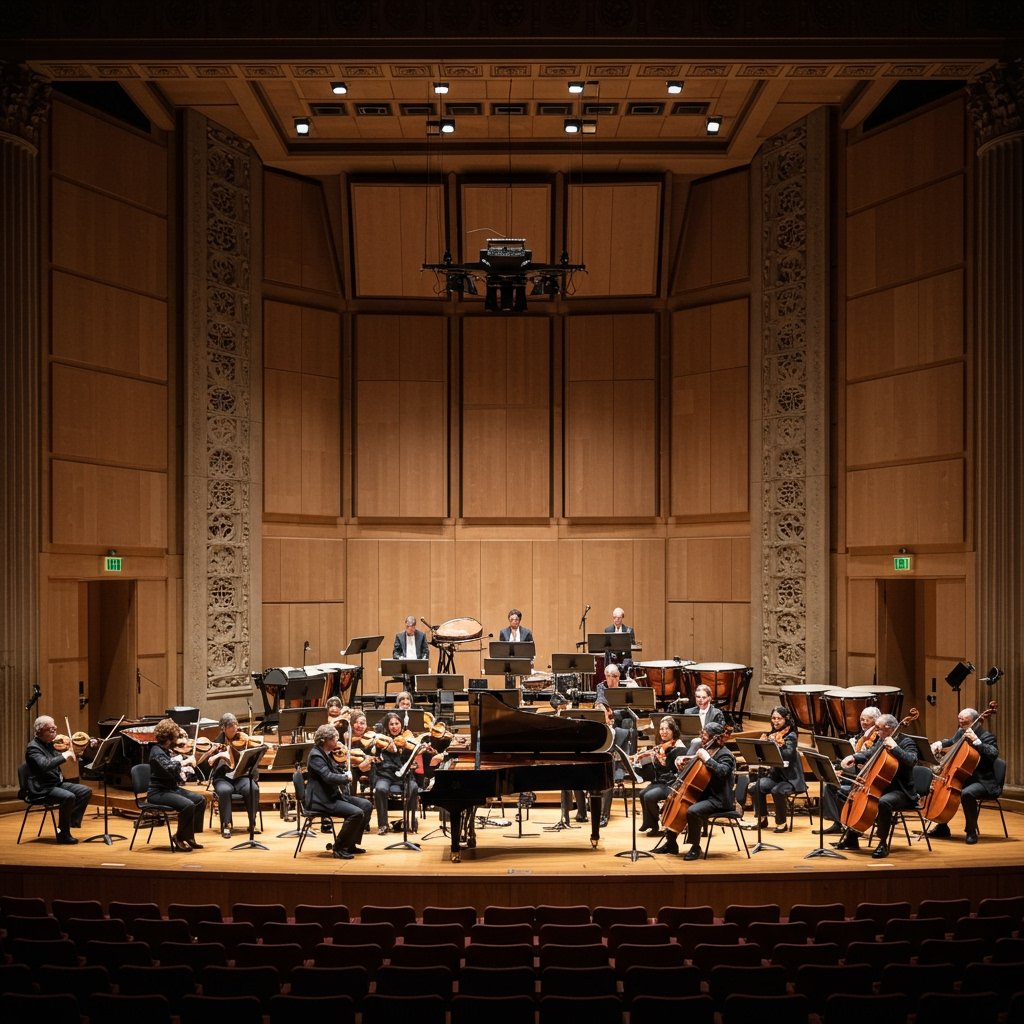Los Angeles, CA – The delicate and often complex dance of labor negotiations is reaching a critical point for one of the nation’s premier cultural institutions. Representatives for the management of the Los Angeles Philharmonic Orchestra have formally responded to the latest series of proposals submitted by the musicians’ union, Local 47. This exchange marks a significant step in the ongoing discussions aimed at hammering out a new collective bargaining agreement before the current contract expires.
The core issues at the heart of these negotiations, as articulated in reports this morning, center on compensation and scheduling stability. For professional orchestral musicians, these are not merely points of financial or logistical convenience; they are fundamental pillars affecting their livelihoods, work-life balance, and the very sustainability of their careers in an often demanding field.
Understanding the Stakes
The Los Angeles Philharmonic is renowned globally for its artistic excellence and its vibrant performance schedule across two iconic venues: the Walt Disney Concert Hall in downtown Los Angeles and the outdoor Hollywood Bowl. The musicians who comprise the orchestra are world-class artists whose dedication and skill bring these performances to life. A failure to reach a timely agreement could potentially disrupt this schedule, impacting not only the musicians and the institution but also the countless patrons who hold tickets and plan to attend upcoming concerts.
The proximity of the contract’s expiration date adds urgency to the dialogue. Negotiations between management and labor unions typically involve a back-and-forth of proposals and counter-proposals, each side seeking to advance its interests while also finding common ground that ensures the long-term health and viability of the organization.
Key Issues on the Table
Sources close to the situation indicate that the union’s proposals have focused particularly on compensation, seeking terms that reflect the musicians’ value, experience, and the high cost of living in the Los Angeles area. Competitive wages and benefits are essential for attracting and retaining top talent, ensuring the orchestra maintains its elite status.
Equally critical are demands related to scheduling stability. Musicians often require predictable schedules to manage rehearsals, performances, personal lives, and other professional engagements. Issues such as minimum call times, rest periods, and clarity regarding performance and rehearsal loads can significantly impact their ability to perform at the highest level consistently. Ensuring stability in these areas is a common objective in orchestral labor talks, aiming to create a more sustainable working environment.
Management’s formal response addresses these specific areas. While the details of their counter-proposals have not been publicly disclosed, the act of issuing a formal response indicates that dialogue is active, even if an agreement remains elusive at this stage. The negotiation process is inherently confidential to allow parties to speak freely, but the subjects under discussion are standard elements of orchestral contracts nationwide.
The Negotiation Process and Potential Outcomes
Labor negotiations are a process built on communication, compromise, and, at times, firm stands. Both the LA Phil management and Local 47 representatives are tasked with finding a path forward that respects the contributions of the musicians while also considering the financial realities and strategic goals of the Philharmonic as an institution. Mediators are sometimes brought in to help facilitate discussion if parties reach an impasse, though it is unclear if that step has been taken or is anticipated in these particular talks.
As the deadline approaches, the pressure to reach a resolution intensifies. A successful negotiation results in a new contract that provides fair terms for musicians and operational predictability for the organization, allowing performances to continue uninterrupted.
However, if an agreement cannot be reached before the current contract expires, the situation could escalate. While not inevitable, possibilities could range from continued negotiations under an expired contract to, in more contentious scenarios, potential labor actions such as strikes or lockouts. Such outcomes, while undesirable, can occur when fundamental disagreements persist.
Impact on Performances and Patrons
For audiences and patrons, the most immediate concern is the potential impact on the performance schedule at both the Walt Disney Concert Hall and the Hollywood Bowl. These venues host a packed calendar of events, including subscription series, special performances, and the popular summer season at the Bowl. Any disruption could lead to canceled or postponed concerts, affecting thousands of ticket holders and potentially causing significant logistical and financial challenges for the Philharmonic.
The Los Angeles Philharmonic is a cultural cornerstone of Southern California, attracting world-class conductors and soloists and serving a diverse community. The stability of its operations and the morale of its musicians are vital to maintaining its artistic preeminence and its connection with the public.
As negotiations continue behind closed doors, all stakeholders – management, musicians, staff, and the public – are hopeful that a resolution will be found that ensures the continued harmony, both artistic and labor-related, of this esteemed orchestra.





